Though Europe is a relatively small landmass compared to the other continents, it occupies an outsized place in the history of the world. And European history itself is complex, multifaceted, and spans the centuries. So, the study of Europe—both its history and its present day—is of obvious import for all of us, while at the same time, the prospect can be rather daunting. Where does one even begin?
Fortunately, we’ve assembled 8 books that should help you navigate the history of Europe, from the earliest days through the ancient Roman Empire to the many wars that have ravaged the continent and beyond. Here, you’ll find emperors and commoners, kings and queens, philosophers and scientists, soldiers and citizens. There are tales of battles and discoveries, of conflicts over religion, over territory, and over more nebulous concepts. Here is the history of exploration, of colonization, of conflict, and of discovery.
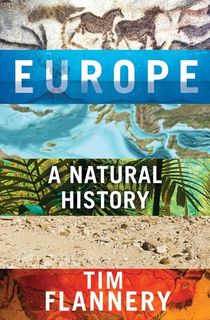
Europe
Spanning fully a hundred million years of history, Tim Flannery’s “marvelous” (Publishers Weekly) tome applies an interdisciplinary approach to study just what its subtitle suggests, a natural history of the continent of Europe. Beginning as the continents of Africa, Asia, and North America interact to create an island archipelago that would eventually become Europe, he explores events ranging from ancient comet impacts to Europe’s present day attempts at wildlife restoration.
Throughout, Flannery focuses on the natural world and, once humans show up in the picture, our role in it—which can be destructive as surely as it can be restorative. From the midwife toad, a creature that has existed in Europe since the continent’s beginning, to attempts to use modern gene editing technology to bring back long extinct species, this one-of-a-kind book will let you see European history in a way that you’ve never imagined before.
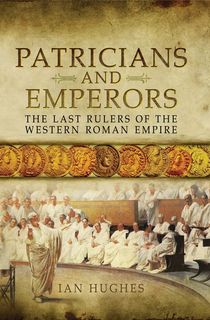
Patricians and Emperors
It is impossible to discuss the history of Europe without discussing the Roman Empire, and this engaging historical narrative traces the final days of the Western Roman Empire through the individuals who were in power during its waning years. Divided into four parts, the book includes detailed biographies and chronologies of those who wielded power throughout the final 40 years of the Western Roman Empire, as it declined and finally fell. From assassinations to invasions by “barbarian” kingdoms, this detailed and decisive book gives us a unique window into a chaotic and crucial moment in the history not only of Europe, but of the world.
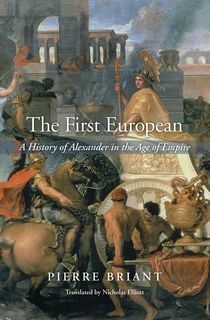
The First European
By 323 BCE, Alexander the Great had carved out one of the largest empires in history, stretching from Greece to India. Perhaps more important than anything he accomplished in life, however, is the legacy that his legend has left behind in Western thinking. At least, so Pierre Briant argues in this “truly remarkable chapter of European intellectual history, laid out with passion and integrity” (Wall Street Journal). In this volume, Briant makes the case that Alexander was the “first European,” a figure whose legacy became iconic in Western thought and symbolic of the “rational and benevolent Western ruler,” which would be used as a model by various European powers as they sought to extend their colonial reach into Africa, South Asia, and beyond.
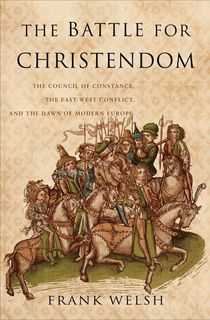
The Battle for Christendom
The Council of Constance, held in 1414, was one of the last major events of the medieval period—and, as historian Frank Walsh argues in this deep exploration, possibly one of the most pivotal moments in European history. With the Ottoman Empire threatening to topple the stability of Christian Europe and three different Popes all claiming the title, the future of Europe might have looked very different had the Council of Constance not taken place on the shores of the Rhine. In this detailed look at the Council itself, as well as its antecedents and consequences, Walsh explores the circumstances that led to the necessity of such a meeting, the individuals and factions who were present, and the ways in which the Council of Constance paved the way for the European Renaissance.
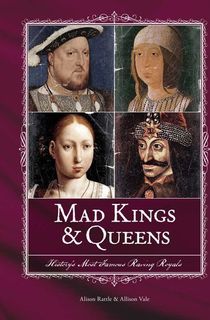
Mad Kings & Queens
Great rulers make history, but those rulers who flaunt their position of power in spectacular fashion are often the ones that we remember the most. From Vlad the Impaler to Elizabeth Bathory, and from Henry VIII with his beheaded wives to Catherine the Great, who overthrew her own husband, this heavily-illustrated book gives quick, dynamic sketches of 40 of the most unusual rulers throughout European history. The focus here is on brevity, but that doesn’t mean that the information contained within is any less enticing, and the authors also explore the “intricacies of royal breeding,” which contributed to the unbalanced nature of many monarchs.
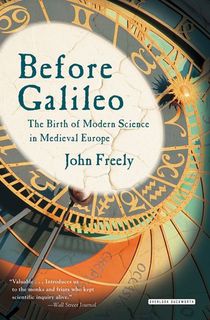
Before Galileo
For many, the beginning of scientific history in Europe starts with Galileo and his conflict with the Catholic Church, which helped to pave the way for the Scientific Revolution. However, studies of Galileo merely scratch the surface of the history of science. In this “valuable” (Wall Street Journal) volume, physicist and historian John Freely introduces readers to nearly a thousand years’ worth of early scientists whose contributions to thought and scientific rigor eventually led to the great discoveries of Galileo, Copernicus, Newton, and so many more. Subtitled “The Birth of Science in Medieval Europe,” this insightful volume explores the work of monks and friars who pioneered scientific inquiry throughout the Middle Ages, sometimes at their own peril.
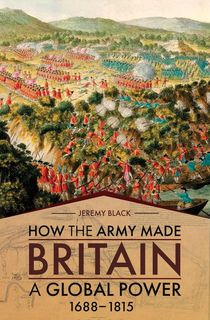
How the Army Made Britain a Global Power, 1688–1815
Just as it is impossible to discuss the history of Europe without talking about the Roman Empire, it is impossible to truly study world history without exploring the global empire of Britain. And yet, how did such a small island manage to exert such outsized influence on the world stage? In this detailed work, acclaimed commentator and historian Jeremy Black argues for the importance of the British Army in the Empire’s global ambitions. While other texts have focused on the significance of Britain’s navy, Black advances the claim that the nation’s ground forces played an equally vital role in securing and maintaining Britain’s colonial expansion.
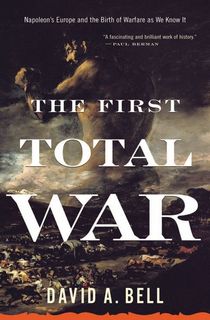
The First Total War
“It reads like a novel,” Lynn Hunt, Eugen Weber Professor of Modern European History at UCLA says of this “mesmerizing account that illuminates not just the Napoleonic wars but all of modern history.” While many point to World War I as the beginning of an age of “total war” in the West, historian David A. Bell argues that the birth of modern warfare began far earlier, during the Napoleonic Wars of the 19th century. In a sweeping, evocative work, Bell describes conflicts across the continent in vivid detail, while also showcasing surprising parallels between the days of the Napoleonic wars and our modern epoch, and illuminating lessons that may still benefit us today.
This post is sponsored by Open Road Media. Thank you for supporting our partners, who make it possible for The Archive to continue publishing the history stories you love.
